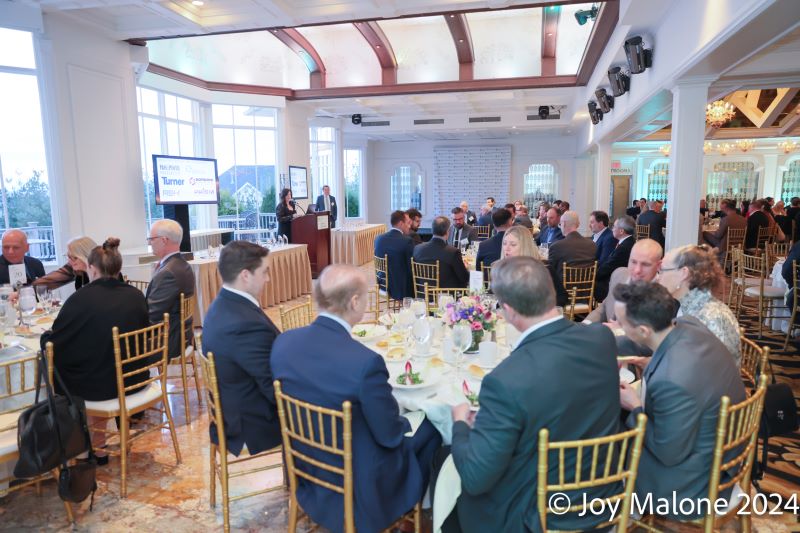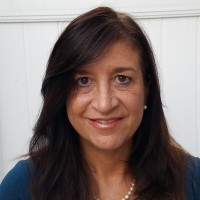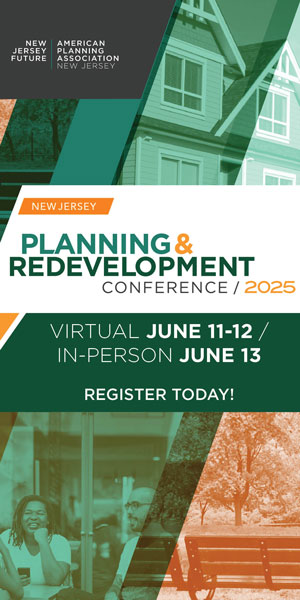Anthony Ianuale (left) and Tom Trautner have served as district council co-chairs for the Urban Land Institute’s Northern New Jersey chapter since late 2019.
By Joshua Burd
Ensuring a smooth transition has been a top priority for Tom Trautner and Tony Ianuale in their final months as co-chairs of the Urban Land Institute’s Northern New Jersey chapter. Fortunately, that has meant continuing what they’ve done for more than four years — engaging members through networking events and thought-provoking panel discussions.
Look no further than a program on affordable housing that ULI NNJ hosted earlier this week, as well as an upcoming tour of the historic and newly restored Hincliffe Stadium in Paterson.
“I think the chairs really can set the tone in terms of … the type of events that we’re going to put on and who we’re trying to attract into the room,” Trautner said, including developers that are relevant to the topic as well as service providers such as architects, engineers and planners.
“And then the hope is that we’re putting on events that will also attract some people from the public space to really create the opportunity for dialogue between the development community and public officials on any type of broad subject.”
Trautner, a top land use attorney with Roseland-based Chiesa, Shahinian & Giantomasi PC, and Ianuale, chief operating and chief financial officer of the consulting firm Dresdner Robin, have maintained that focus as they hand the reins to new co-chairs. Elizabeth Limbrick of the Economic Development Authority and Dan Johnson of R&J Strategic Communications will succeed them starting July 1, but only after a period that saw local membership grow to more than 400 and key growth in other areas for an organization whose core mission centers on urban redevelopment, best practices in land use and other principles.
Ianuale and Trautner have helped guide that growth over their extended tenure, which includes a second term as a result of the COVID-19 pandemic, working hand in hand with ULI NNJ Executive Director Mara Winokur.
“We’re the front-facing part of ULI that membership really sees when they want to see us,” said Ianuale, who was effusive in his praise of Winokur, adding: “Built in with her experience and her dedication is a huge amount of continuity moving forward.”

Ianuale said he became involved in ULI in the 1980s while working as a development executive in New York. His employer at the time was active with the organization, he said, and “ULI was where I got to go to explore what others were doing and just learn from everyone else’s experience with all sorts of developments locally.”
He added that the organization’s apolitical nature made it even more valuable as a clear view of the market, especially when it came to its annual Emerging Trends in Real Estate report.
“It was really truly based on the product, what was needed in the marketplace and strategies to deliver viable urban projects,” Ianuale said. “And there’s a fair amount of learning from others, networking and just meeting other similar individuals in the organization. So that’s what drew me originally.”
Trautner, for his part, joined ULI around 2015 after spending his earlier career establishing himself as an attorney, he said. He realized at the time that “I needed to come out of the bunker and get to know people in the industry,” prompting him to explore different trade organizations in real estate and ultimately connecting with Winokur and the ULI NNJ team.
One of his earliest projects with the group was to organize a five-part panel discussion that explored the full development cycle from acquisition to delivery, “and it was really targeted toward teaching people who are new to the real estate industry,” such as a junior civil engineer or attorney.
“I got a lot of satisfaction out of putting that together, putting the speakers together and moderating some of the panels,” said Trautner, who chairs CSG Law’s redevelopment, land use and zoning group. “So I was fully hooked on ULI as a result of that experience, because I feel like it was rewarding to see it had value for the people who attended.”
Ianuale and Trautner took over as district council co-chairs in summer 2019, succeeding veteran brokers Brian Whitmer and Michael Lachs. That meant taking an even larger role in driving engagement through events and other avenues.
“We’re not a lobbying organization, so we don’t have any specific agenda in terms of trying to advance a legislative initiative in Trenton,” Trautner said. “We’re just trying to foster a robust dialogue.”
Winokur, who has spent some 15 years as executive director for both the New Jersey and Westchester/Fairfield chapters, said Trautner and Ianuale have excelled in that regard. She noted that “we’re really a membership-led and -driven organization, so leadership is really critical to the operation of the district council.”

They’ve also worked cohesively, which is critical for a model that relies on co-chairs instead of a single volunteer leader.
“They have different skillsets and different expertise that, when you put them together, it was a wonderful combination,” Winokur said. “And I think the challenge when you look at trying to find the right people to fill those key leadership seats is to make sure that they do bring different skillsets to the table, that they complement each other and that they can work together.”
That was evident as they navigated the pandemic and as the chapter quickly pivoted to webinar-style events, while figuring out how to maximize attendance for those programs. And it was notable that the organization not only avoided a decline in membership during that time, Ianuale said, but has managed to grow its ranks by roughly 20 percent since late 2019.
Volunteering for a second term as co-chairs helped ensure continuity after the COVID crisis, while providing Ianuale and Trautner with a true opportunity to impact the organization, which they’ll continue to as co-chairs of the district’s governance committee. It also provided a larger sample size for gauging the chapter’s progress and growth.
To that end, Trautner noted that “all of our metrics have moved in the right direction,” from membership and sponsorship dollars to the success of its spring awards gala. He also feels the chapter has showcased and promoted the industry’s diversity, as evidenced by both its events and efforts such as scholarships.
“And I personally believe that we’ve re-ingratiated some members of the development community who hadn’t been involved in ULI for a little bit of time at the point where we came on,” Trautner said. He believes that has made for stronger panel discussions and better retention.
Ianuale, meantime, praised the members involved in the chapter’s Women’s Leadership Initiative and Young Leaders groups, both of which have “really taken off” in recent years. He also lauded the incoming district council co-chairs, Johnson and Limbrick, calling them “terrific social leaders” and touting their ability “to engage with others regardless of what ULI does.”
Trautner agreed that the chapter was in good hands going forward.
“What we need are people to really set the tone with their Rolodex, which both of these individuals have, in continuing that nice collaborative environment, a lot of camaraderie, a lot of smiles and hopefully a lot of laughs,” he said. “And at the same time (they’re) bringing serious people into the room for these panel discussions, project tours and other things that we do that hopefully delivers value to the membership and continues on from generation to generation.”










